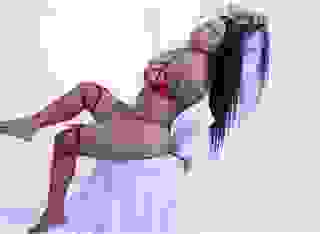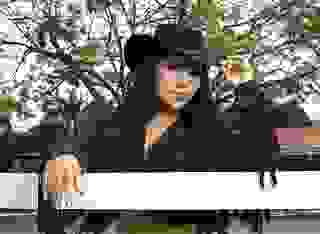- Non-Erotic Poetry
- achilles
- Comments
All Comments on 'achilles'
by Senna Jawa
- 13 Comments
Aesop, the Iliad, and the Metamorphous. All rolled into one.
I like, really do.
I like the idea and the general flow of the poem but I find the word 'morphed' a real barrier for me. To me it conjures up computer animation, in the making of which 'morph' and 'morphed' are common palance. I just get dinsney type imagery in my head because of this. I don't think that was your intention but maybe I'm wrong.
I share the Dutchman's reaction to morph, but am particularly disappointed by the rather flat imagery. I grew impatient as I read.
Fly
A nice analogue of the concept of limit, Senna Jawa. I especially like the changing of the lead creature to emphasize the decreasing distances as delta x approaches 0. (At least I think this is what you're doing, but I'm a dunce, so it is entirely possible I'm wrong. It's also been forever since I took calculus.)
In any case, I quite like this.
There are some things never grasped no matter how slow the sought or how fleet the seeker. Another poem to envy.
Tess
he will never catch him, will he? I always enjoy your work and the ending of this one is great:)
Straightforwardness in language
Cleverness in composition
Wit in allusion
Much enjoyed
Loved it, allusion and illusion in a dance. I had no problem with morphed, in my mind it brought up the Greek god of dreams.
Zeno's paradox! I particularly like the fact that you have the repetetive passages like a choir refrain making the transition to the next act like a greek tragedy. The words describing the actual content are very few and it is in the repetetiveness that the actual story unfolds. Very neat.
I was somwhat disappointed with the closing. You make eternal hope (of the not too bright Achilles) the theme of your closing. What is so poignant however, is that he gives up because he perceives he can never win after the tortoises explanation. This element by which he makes illusory perception reality is what drives the parable.
Why did you change that? It lends a sweetness where the sardonic smile was.
I'd like to thank all of you for your kind comments.
***
Now let me comment too, just as another reader, since the role of the author was finished the moment my poem got posted.
Achilles pronouncement is just that--the Achilles pronouncement--and not more; the Achilles statement is not what the poem itself says. The poem itself does not bother to make any statement. The conclusion is left to the reader. Thus I was surprised that the reader from Canada made a fictitious equation between the poem and Achilles, which did injustice to the poem. It is interesting to note that our sympathetic Canadian got roughly the right idea, concluding that perhaps Achilles was not too bright.
As a reader, I can say that to me the poem reminds us that we are often under a proud but ignorant illusion of making progress, while in reality, instead of going miles ahead, instead of approaching infinity, as we think that we do, we are nearly standing in place, and our progress does not lead anywhere much beyond the end of our nose. Thus to me there is certain irony in this poem. Indeed, at first Achilles is racing a cheetah but, how ironically, he ends up racing a snail!!! The final words by Achilles have to be viewed in this context.
***
Now, let me put back my author's hat on. In quite a number of my poems there is a duality and tension, even a contrast, between what the lyrical subject says (or a main character) and the trust of the poem. For instance, the lyrical subject may consider himself romantic and intelligent, while the reader may see that the lyrical subject is full of himself, something like this. The lyrical subject (or the main character) is just one more object in the poem, just like a table or a tree or a horse. Thus as a minimum, there is always distance between the poem and the lyrical subject. The lirycal subject never owns the poem.
Also, I hardly ever take sides in my poems. If there are two sides in a poem of mine then usually both are getting their share of discrete ironic treatment. Mostly, I try to provide objective items, and the rest is up to you, readers, and don't expect anything from me, don't assume anything, don't prejudice anything.
***
Thank you again, regards,
Senna Jawa
Your achilles here looks to be a couple cans shy of a six-pack; still, a humorous piece.
I can understand Achilles frustration of chasing after a shapeshifting animal. They are surprisingly fast no matter what shape they are in.














